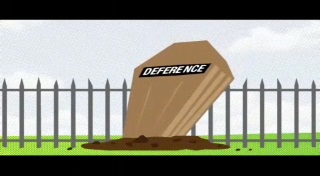The growth of alternatives?
One of the major debates triggered by the events of 2008, such as the collapse of Lehman Brothers and the wider economic crisis, was whether economic and corporate policies would revert to business as usual or whether alternative models would be adopted.
From a range of political perspectives, thought leaders are talking about the possibility of alternative and new approaches to economic activity. New interest was shown in social enterprises and co-ownership models. The Occupy Movement, which emerged across a number of countries alongside widespread anxiety about top pay and bonuses and added anxiety about the adequacy of regulatory bodies, reflected a widespread concern about extreme inequalities and the institutions which reproduce them. A counter voice expressed warnings about an 'anti-business' culture which could hamper economic recovery and growth.
Each and all of these can render prescriptions about HR that were suitable for one time and place, ill-suited to a different time and place.
Activity 8: The changing social context: the death of deference
Watch this short and playful clip about the death of deference and its critical contribution to modern leadership, management and organisation design, and answer the questions that follow.

Transcript: Never mind the bosses and the need for S.P.E.E.D.
[DINOSAUR ROAR]
[SHUTTER CLICK]
[MUSIC PLAYING]
- What is your assessment of the validity of the claims made about fundamental changes to the social climate regarding authority?
- What, if any, are the main implications for human resource management specialists?
Write your notes in the space provided below.
Discussion
Our view is that this is a clever and persuasive short video heralding the death of deference and the rise of empowered and engaged employees, customers and suppliers. The claimed revolution is more likely to be disparately represented across and within economies. In that sense it over-claims. But it does touch on a recognisable trend in certain quarters.
If the analysis is correct, there are profound implications for the practice of human resource management. These include (to name just a few): a need for even less reliance on formal rules and procedures; a need to focus on staff recruitment and staff development; a new approach to reward. The analysis also implies a trend towards a more individualised form of employment relationship. Currently a more collectivised form of relationship is the norm, with collective bargaining, rules and procedures, job grades, job evaluation and a formal hierarchy of authority dominating in most sectors.
